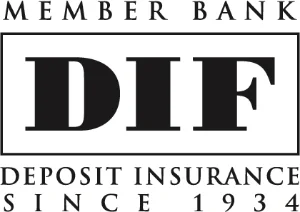
A few weeks ago, I was contacted by the American Police Officers Alliance. The gentleman sounded like he was reading a script. In fact, at first I wondered if it was one of those pre-recorded bot calls.
When I could get a word in edgewise, I asked if this group was a charitable organization and the caller told me honestly it was not. “We are a non-charitable political organization,” he said. Basically, it looks like they’re lobbyists.
Since that organization was not one I was interested in making a donation to, I got off the call. It did get me thinking about charitable contributions and how it’s become increasingly important that you do your due diligence and ask questions to make sure your donations are actually doing what you hope they’re doing.
Maybe you have an emotional connection to a major national charity supporting a specific cause and they’re your most direct way to make a difference. That’s obviously fine. That’s great!
But if you have found yourself wondering if the donations you’re making would make a bigger difference to a smaller, more local charitable organization, that’s definitely worth exploring.
One example – a few years ago, I was approached by a national organization supporting veterans. I wanted to help but had the feeling my modest contribution would be just a drop in the overhead bucket for them. Luckily, I could ask the local Veterans Agent, a fine gentleman now retired. He suggested a few area groups where every dollar went directly to helping local vets in need. That felt much more useful to me, and those are the groups I gave to.
That’s a key point. No matter how big or how modest, the donations you give should make you feel glad to have helped.
Sadly, it’s not uncommon to hear about things getting out of control for individuals who make multiple small (or not-so-small) donations to a wide variety of charities on a regular basis. Sometimes people who thought they were giving amounts they could easily afford learn to their surprise that they’re actually giving much more.
If anything about making a charitable contribution is making you feel nervous, that’s a red flag:
> If a caller from a charity asks you to leave an envelope at your door with cash to be picked up, don’t do that!
> If it’s not a good time for you to make a contribution, it’s okay to say so.
> If you only give to genuine 501(c)(3) organizations so you get a tax deduction, that’s 100% your choice.
(Even legitimate charities sometimes use very aggressive tactics. But be aware that scammers are out there trying to take advantage of people’s generosity and desire to help – and scammers can be very, very aggressive. You’re under no obligation to talk to anybody who calls you out of the blue looking for a contribution. No need to be polite in a case like that – just hang up.)
Consider setting an annual amount you’re comfortable giving to charity and look for ways to make that go further – perhaps with an employer match or a match at the charity itself.
And feel free to take all the time you need to make sure a charity lines up with your reason/s for giving. Online resources like CharityNavigator.org – “the world’s largest independent non-profit evaluator” – can help you be more informed and more confident before you give.
Nick Maffeo is the President & CEO of Canton Co-operative Bank – right next to the Post Office in Canton. Have a question? Email to info@cantoncoopbank.com.


